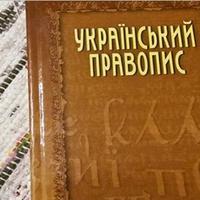Буква ї
lettre|ї
Letter yi|letter ї
Ihr Brief
Her letter
Letra i
Sa lettre
手紙私
Letra i
Буква "й
Brev i
這封信我
Букву ї, що позначає звуки й + і, пишемо:
la lettre|||indique|sons|||
letter|yi||indicates|sounds|||we write
|||bezeichnet||||
文字|||表す|音|й音||
Der Buchstabe yi, der die Laute und + und bezeichnet, schreiben wir:
The letter yi, denoting the sounds and + and, we write:
La lettre yi, désignant les sons et + et, on écrit :
音 и + и を表す文字 и を書きます。
1.
1.
1.
На початку слова та після букви, що позначає голосний: герої́зм, ї́жа,
|au début||||lettre||indique|voyelle|héroïsme|nourriture
|the beginning|words||after|letters||indicates|vowel sound|heroism|food
||Wörteranfang, Vokal||||||Vokal|Heroismus|Essen
|||||文字|that||母音|英雄主義|食べ物
Am Anfang des Wortes und nach dem Buchstaben, der den Vokal bezeichnet: Heldentum, Essen,
At the beginning of the word and after the letter denoting the vowel: heroism, food,
Au début du mot et après la lettre désignant la voyelle : héroïsme, nourriture,
単語の先頭と母音を表す文字の後に: 英雄的行為、食べ物、
їжа́к, їзде́ць, ї́здити, ї́сти, їх, ї́хати, краї́на, мої́, наї́вний, твої́, руї́на.
hérisson|cavalier|||||||naïf||ruine
Igel|Reiter, Fahrer|fahren, reisen||||||naiv, gutgläubig||Ruine, Trümmer, Zerfall
Hedgehog|rider, horseman|to travel|To eat|them|To go|Country, land, nation|my|Naive, innocent, gullible|your (plural)|ruin, destruction, wreck
hedgehog, rider, ride, eat, them, ride, country, mine, naive, yours, ruin.
hérisson, cavalier, chevaucher, manger, eux, chevaucher, pays, mien, naïf, vôtre, ruine.
ハリネズミ、ライダー、乗る、食べる、彼らの、乗る、国、私の、素朴な、あなたの、破滅.
2.
2.
Після м'якого знака: Ана́ньїн, Віньї́.
||signe|Ananyin|Vigny
after|soft|soft sign|Ananyiyn|Vinyi
Nach dem weichen Zeichen: Ananijin, Vinij.
After the soft sign: Anan'in, Vin'i.
Après le signe doux : Anan'in, Vin'i.
3.
3.
Після апострофа: в'їзд, з'їзд, об'ї́хати, під'ї́зд, Заха́р'їн.
||entrée|congrès|contourner|accès|Zakharine
after|apostrophe|entry|congress, descent, exit|to drive around|Entrance hall|Zakharyn
||Einfahrt|Kongress|umfahren|Eingang|Sacharjin
Nach dem Apostroph: Vjezd, Zjezd, Objihati, Pidjizd, Zacharjin.
After an apostrophe: entry, exit, bypass, approach, Zakhar'in.
Après l'apostrophe : entrée, congrès, faire le tour, entrée, Zacharie.
4.
В іншомовних словах після букви, що позначає голосний: архаї́чний,
|étrangères|||lettre||||archaïque
|foreign language|words|after|letter||indicates|vowel|archaic
||||Buchstaben||bezeichnet|Vokalbuchstabe|
In Fremdwörtern nach dem Buchstaben, der den Vokal bezeichnet: archaisch,
In foreign words after the letter denoting the vowel: archaic,
егої́зм, еліпсо́їд, моза́їка, проза́їк, целуло́їд.
|ellipsoïde|||celluloïd
Egoismus|||Prosaautor|Zelluloid
Egoism|Ellipsoid|mosaic|Prose writer|Celluloid
エゴイズム|楕円体|モザイク|小説家|セルロイド
selfishness, ellipsoid, mosaic, prose writer, celluloid.
Примітка.
Note
Note.
注釈(1)
Notiz.
Note.
Ї не пишемо після префікса або першої частини складного слова, якщо
|||||||ersten Teils|||
||we write||prefix or first||first part of|part|compound word||if
||||接頭辞||第一の||複合語|単語|
Es wird nicht nach dem Präfix oder dem ersten Teil eines zusammengesetzten Wortes geschrieben, wenn
It is not written after the prefix or the first part of a compound word, if
вони закінчуються буквою, що позначає голосний, а наступний склад або друга частина
elles|se terminent|par la lettre||||||syllabe|||
|"end with"|letter indicating vowel||indicates|vowel||next|syllable||second|part
それらは|終わる|文字|that||||次の|音節||第二|
Sie enden mit einem Buchstaben, der einen Vokal bezeichnet, und der nächsten Silbe oder dem zweiten Teil
they end with a letter denoting a vowel, and the next syllable or second part
складного слова починаються з і: доістори́чний, заінтригува́ти, переіна́кшити,
|||||préhistorique|intriguer|reformuler
complex||begin with|||prehistoric|intrigue|reinterpret
|||||prähistorisch|neugierig machen|umgestalten
||始まる|||先史的な|興味を引く|再構築する
zusammengesetzte Wörter beginnen mit und: prähistorisch, Intrige, verzerren,
compound words begin with and: prehistoric, intrigue, distort,
поінформува́ти; новоірла́ндський, староінді́йський.
informer|nouvelle-irlandaise|ancien indien
informieren|neu-irisch|altindisch
inform, New Irish, Old Indian|New Irish|Old Indian
情報を提供する|ノヴァイラント|古代インドの
to inform; New Irish, Old Indian.

